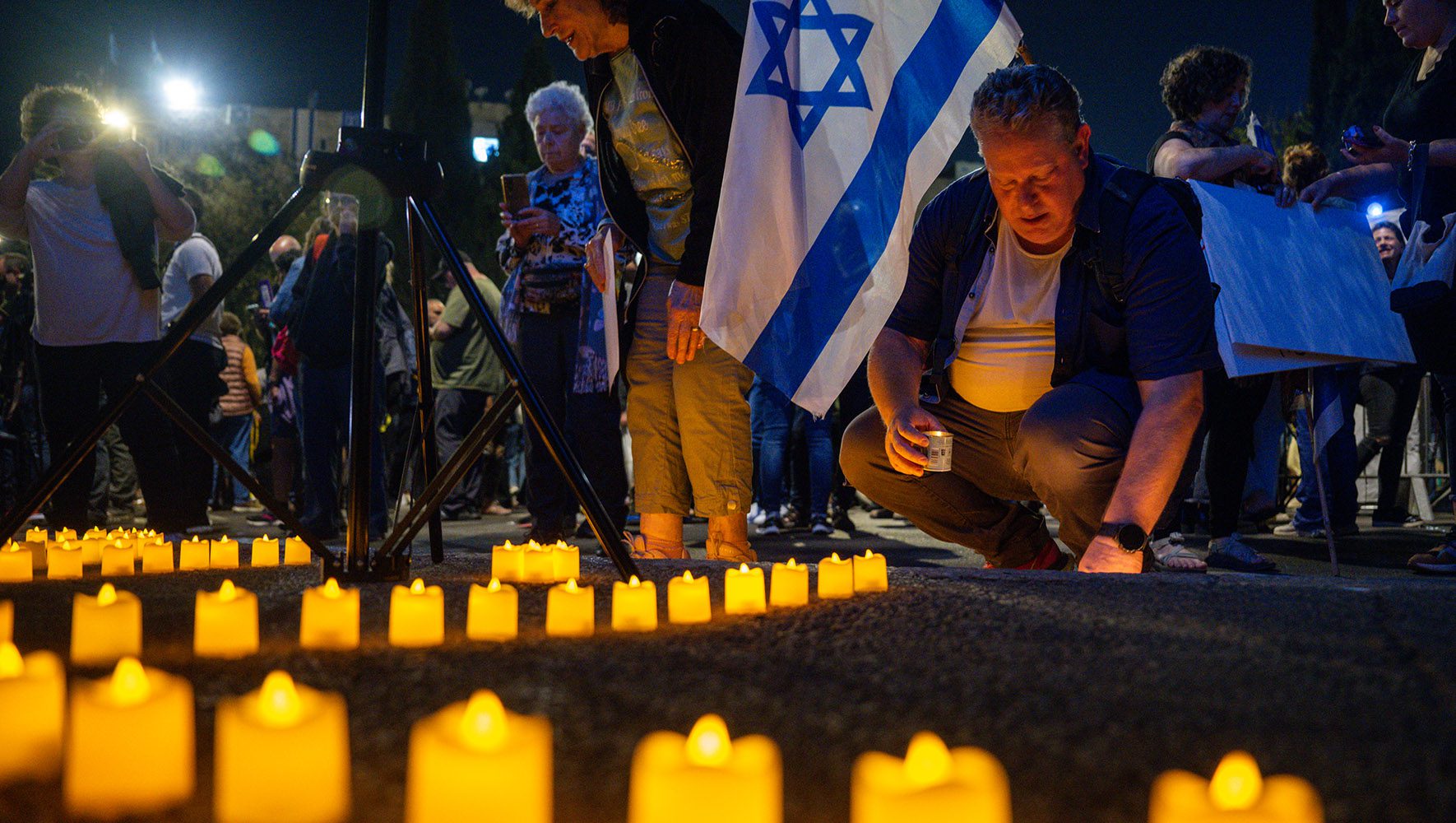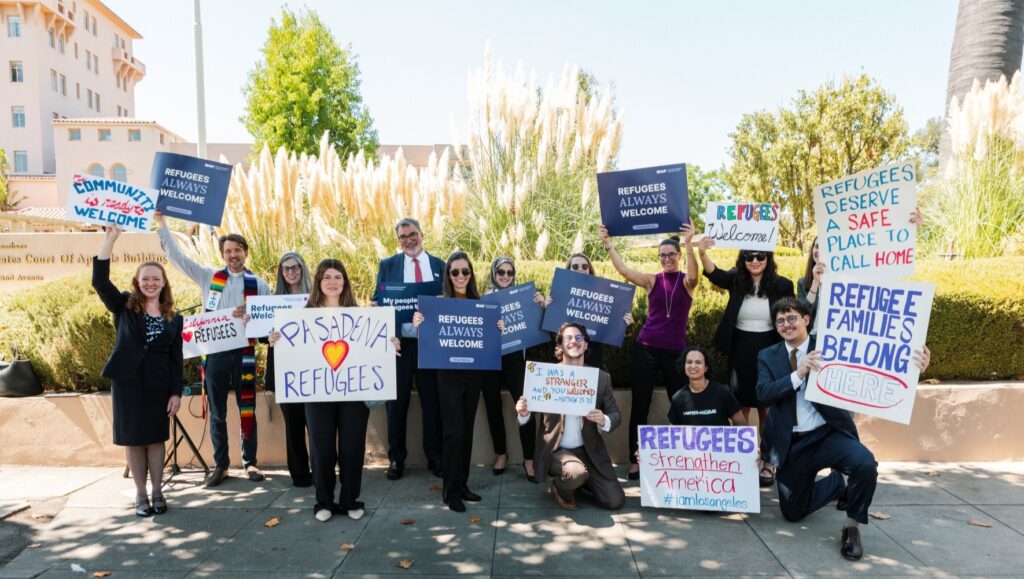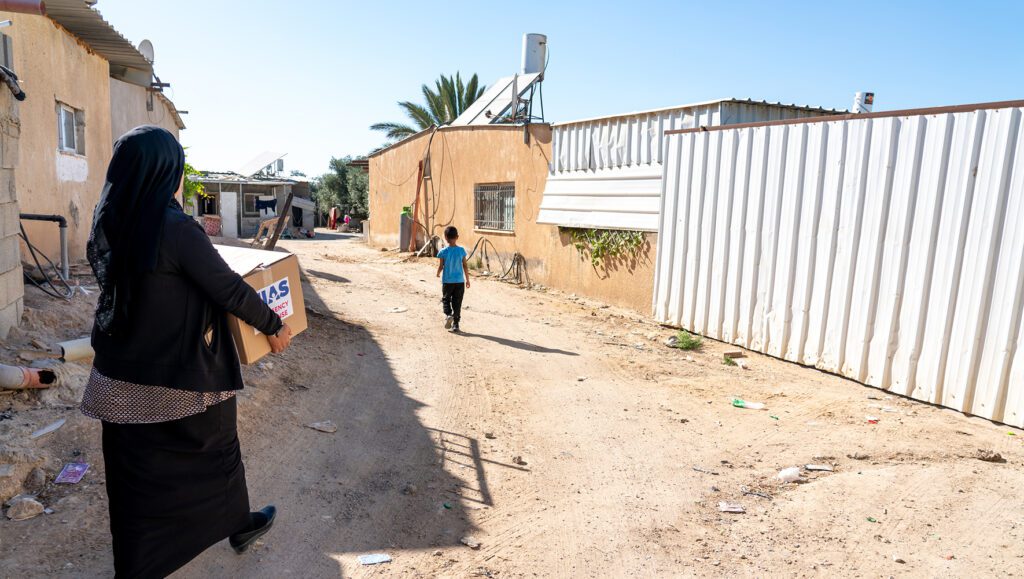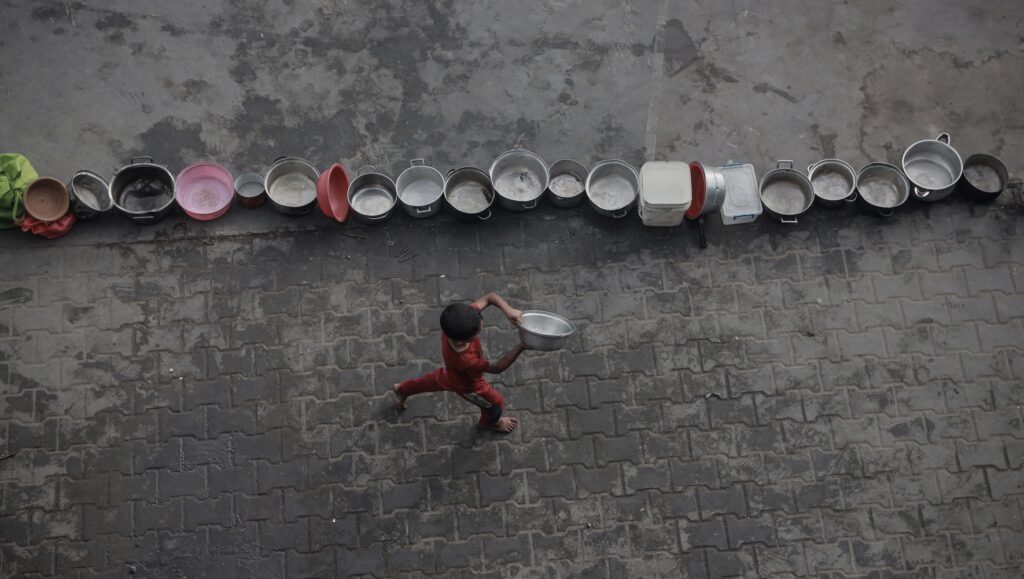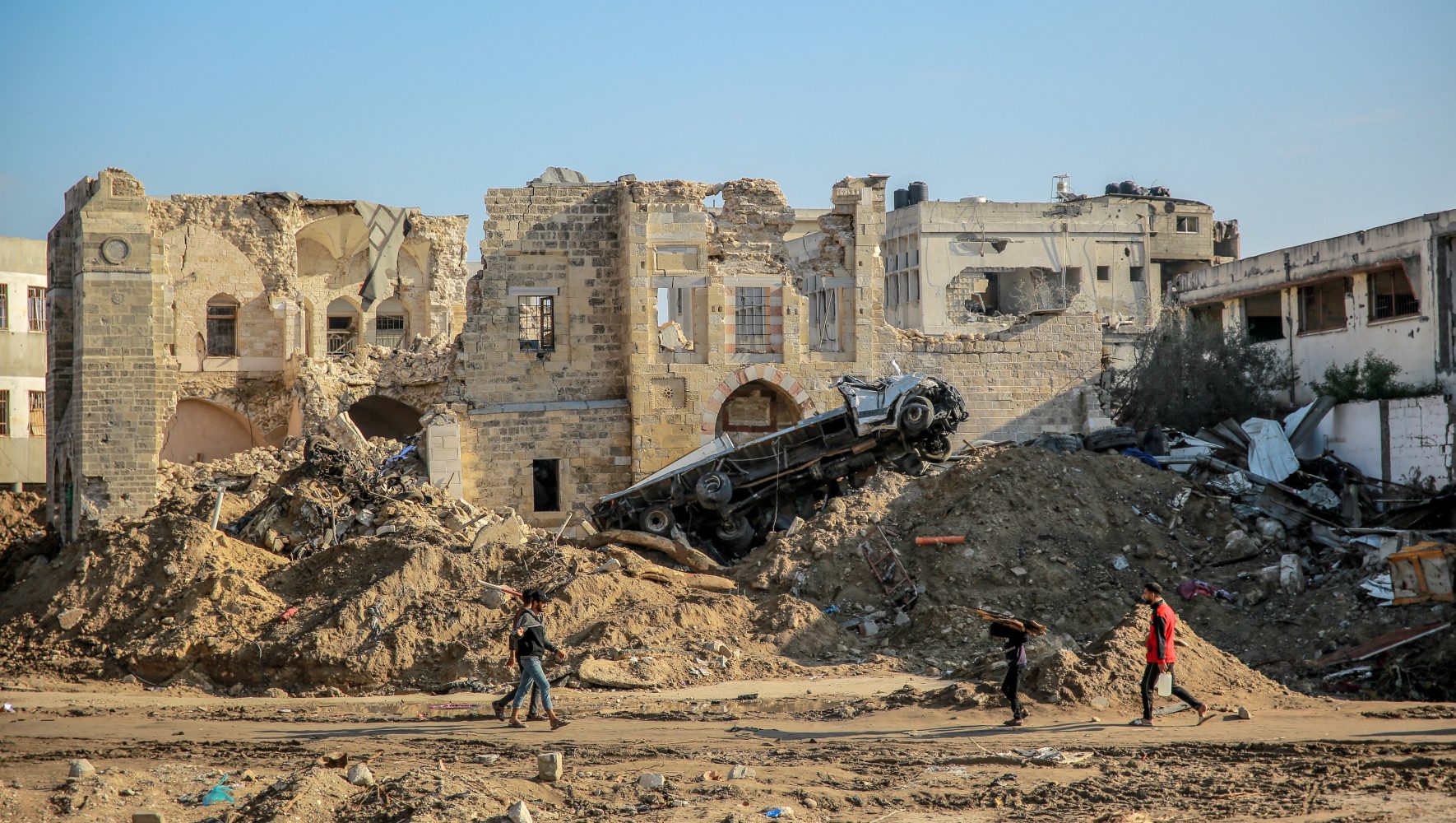
In the initial days of 2024, the sense of joy and renewal that typically accompanies the start of a new year has felt overrun by the knowledge that for so many people around the world, the season was devoid of celebration.
Ironically, nowhere is this truer than in the Holy Land.
The people of Israel are still reeling from the attacks of October 7, the biggest mass slaughter of Jews since the Holocaust. And today, in Gaza, the tragedy compounds itself. In Gaza, hostages taken from Israel are passing 100 days in captivity, and more than 2 million people are approaching 100 days of violence, displacement, and suffering. Just this week, the UN’s top humanitarian official warned that “famine is around the corner.” Today, four out of every five people in the world who are experiencing catastrophic hunger are living in Gaza.
The wisdom of Jewish tradition recognizes the gravity of these conditions all too well. Rabbis in the Talmud declared with the clarity of lived experience that “Famine is worse than the sword (war)” because of the immense suffering widespread hunger inflicts before it claims its victims. The rabbis also declared in the same breath that captivity is worse than anything as it includes famine, war, and death.
The global Jewish community righteously feels devastation, rage, and distress over the horrific attacks perpetrated on October 7, the ongoing rocket assaults in Israel, and the continued captivity of over 100 hostages. And yet this violence cannot allow us to turn a blind eye to mass displacement and an avoidable famine impacting an entire civilian population. They cannot be treated merely as an unfortunate byproduct of war.
Our pain in the face of inhumanity perpetrated against Jews cannot allow us to abandon our fundamental belief in the humanity of all people. Recognizing the dignity in others is an affirmation of our own dignity — even and especially in our own suffering.
Historically, when Jews have been persecuted because of who we are, we have turned to our tradition for inspiration and strength. At the core of the Torah’s teaching is a concern for the most vulnerable without prejudice for nationality or station in life. In the face of this historical moment of heightened antisemitism that has sparked fear and anxiety for much of the global Jewry, we once again draw upon our tradition’s empathy as a source of resilience.
"Our pain in the face of inhumanity perpetrated against Jews cannot allow us to abandon our fundamental belief in the humanity of all people."
For more than a century, HIAS has lived this Jewish value — assisting people who have survived violence and conflict. We serve civilians who are the victims of wars they did not cause and of terror they did not inflict.
It is because of this that we must speak out with a clear moral voice about the destruction and devastation in Gaza. One of every 100 residents of Gaza has been killed, including more than ten thousand children. The vast majority of the population has had to flee their homes, sometimes multiple times. Seventy percent of homes have been damaged and destroyed, leaving hundreds of thousands of people facing a winter exposed to the elements. Children that should be able to go to school cannot because their schools have been destroyed or turned into shelters. Sixty percent of Gaza’s 36 hospitals are inoperable just when they are needed the most. The lack of healthcare, combined with the lack of clean water and food has led to a sharp increase in malnutrition and disease. It is a shock to the conscience, and it must be a call to action.
Humanitarian organizations are striving to meet the needs of people in Gaza, but currently can’t. The aid allowed to enter the Gaza Strip is a tiny fraction of what would be required, and given the ongoing violence and destruction of infrastructure, it has been almost impossible to distribute it. More than 150 aid workers have been killed in the violence.
For the sake of Israelis and Palestinians and civilians throughout the region, we urgently need to see real political solutions that ensure the safety and dignity of all people. Not one more person should experience the trauma of violence and displacement, of families lost and torn apart, of hunger. Those held captive and the displaced must be able to return home, and all people must be able to live in safety, dignity, and peace.
We must make a conscious decision not to meet this moment with handwringing and anguish. We refuse to stare down an abyss of despair when we have the power to pull back from the brink of famine, destruction, and death. As Rabbi Jonathan Sacks (z”l) wrote, “There is nothing written into the structure of the universe that dictates that hate, war, violence, and bloodshed are constitutive features of the human situation.”
At the same time, we can and must proactively address the many ways that this conflict has impacted us directly and indirectly — including the strained personal and communal relationships torn apart by disagreement, and the rising antisemitism and Islamophobia harming Jews and Muslims around the world.
Regardless of politics, each of us can choose to stand on the side of humanity. On the side of those who are under near constant rocket fire. On the side of those held hostage. On the side of those without access to food and water and basic medical care. On the side of children who have become orphans, of parents who have become childless. On the side of those whose entire world has been destroyed.
And when this conflict does end, let our commitment to humanity not be its final victim.
